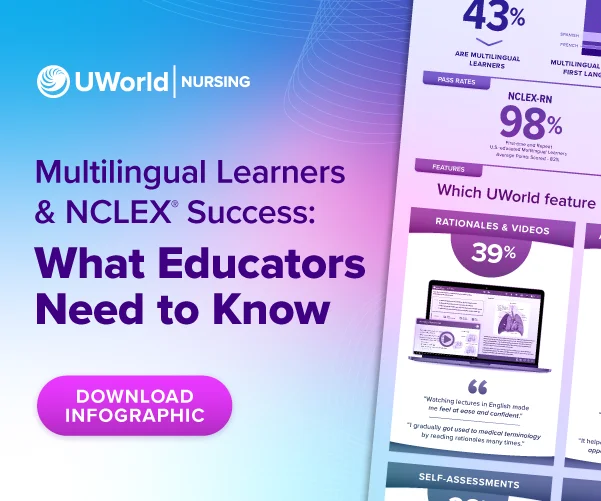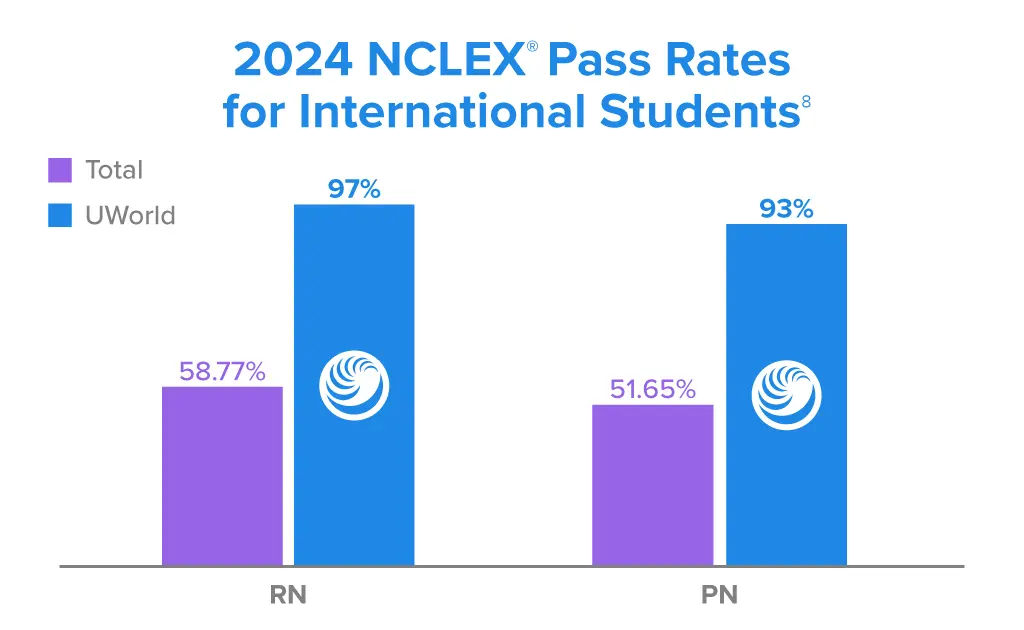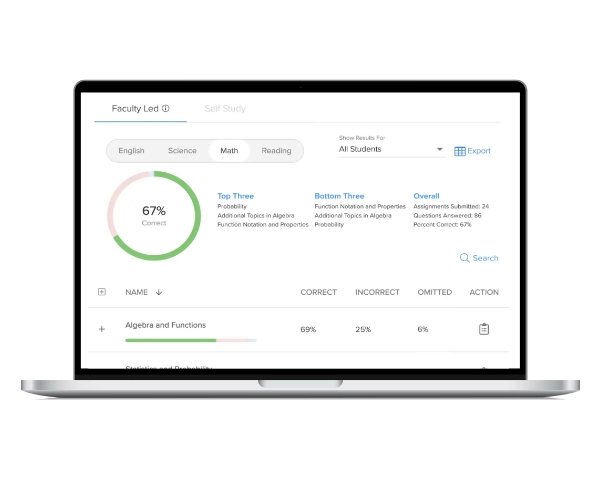The United States and Canada face a persistent nursing shortage, leading healthcare institutions to seek various solutions. One significant strategy is the recruitment of internationally educated nurses (IENs). This raises important questions: What challenges do IENs typically face when integrating into U.S. and Canadian healthcare systems? How can nurse educators effectively support their success?
Addressing Nurse Shortages
Nurse shortages are not exclusive to the United States or Canada. However, several compounding factors have worsened the situation. These include aging populations, retiring nursing workforces, the impact of COVID-19, high levels of stress and burnout, geographic disparities, and shortages of nursing faculty in schools. Recruiting IEN talent can help address these shortages, and the first step is understanding nurse migration flows.
The U.S. Nurse Migration Report
As the demand for nurses continues to rise, the 2024 Commission on Graduates of Foreign Nursing Schools (CGFNS) International (now known as TruMerit) Nurse Migration Report1 revealed a 4.6% decrease in VisaScreen® applications from 2023 to 2024, with a total of 24,733 applications received in 2024. VisaScreen is a program that assesses the credentials of foreign professionals to verify they meet U.S. standards for certain work visas.
Key insights from the report include the following:
- Although the exact percentage of registered nurses (RNs) among VisaScreen applicants for 2024 is not specified, the report emphasizes nurse migration, indicating that RNs likely constitute the majority of applicants.
- 51% of VisaScreen applicants were educated in the Philippines, down from 60% the previous year.
- 76% of VisaScreen applicants sought permanent resident status.
- 92% of VisaScreen certifications were awarded to nurses educated in countries like the Philippines, Canada, Kenya, Nigeria, and Ghana.
- Canada now represents 8% of VisaScreen certificates, while Kenya accounts for 6.5%.
- Despite the slight decrease from 2023, the 2024 figure remains nearly 200% higher than the fiscal year 2018 level.
Total VisaScreen® Applications Received1
| Year | Applications |
|---|---|
| 2024 | 24,733 |
| 2023 | 25,935 |
| 2022 | 17,354 |
| 2021 | 12,015 |
| 2020 | 8,586 |
| 2019 | 10,869 |
| 2018 | 8,297 |
*CGFNS International Inc. (CGFNS), now known as TruMerit, is an immigration-neutral, nonprofit organization that helps foreign-educated healthcare professionals live and work in their country of choice by assessing and validating their academic and professional credentials.1
The Canadian Report
The National Nursing Assessment Service (NNAS) is a nonprofit organization comprised of 18 nursing regulatory bodies across Canada. NNAS recently released the 2024-25 annual report2, which includes verified information that supports licensing decisions and enhances understanding of the nurse workforce supply.
Highlights from the report include:
- The number of IENs applying for credential assessment to enter the Canadian nursing workforce has been steadily increasing.
- Most 2024-25 NNAS applications originate from India, the Philippines, the United States, Ghana, and Nigeria.
- NNAS processing times continue to outperform targets, with the regular service averaging 5 months and expedited service averaging 2.4 months.
Licensure Requirements for IENs
In the United States, the National Council of State Boards of Nursing (NCSBN) supports the Boards of Nursing (BONs), which protect the public by standardizing requirements for IENs to practice. Similarly, the Canadian Council of Registered Nurse Regulators (CCRNR) consolidates the 12 provincial and territorial nursing regulatory bodies responsible for establishing and enforcing uniform standards for IENs across Canada. Here’s a breakdown of requirements for each nation and areas of overlap:
Licensure Requirements for IENs in the U.S. and Canada
| U.S.3 | Both34 | Canada4 |
|---|---|---|
| Must graduate from a nursing program accredited by the appropriate BON and verified by TruMerit or state agencies | Must undergo detailed background checks, including fingerprint analyses and self-disclosing misdemeanors, felonies, or plea agreements | Must graduate from a nursing program accredited by the CCRNR and verified by the NNAS |
| Must pass the National Council Licensure Examination for Practical Nurses (NCLEX-PN®) to become an LPN in the U.S. | Must disclose recent substance use disorders and may be mandated to complete an evaluation | Must pass the Regulatory Exam - Practical Nurse (REx-PN®) to become an LPN in British Columbia or Ontario* |
| Must self-disclose nursing licensure status and demonstrate English proficiency, with exceptions primarily for applicants from English-speaking countries with programs taught in English | Must disclose any disciplinary actions against professional licenses | Must self-disclose nursing licensure status and demonstrate English or French proficiency, with exceptions primarily for applicants from English- or French-speaking countries with programs taught in English or French |
| Must pass the National Council Licensure Examination for Registered Nurses (NCLEX-RN®) to become an RN |
*Most other Canadian provinces require applicants to complete and pass the Canadian Practical Nurse Registration Examination (CPNRE).4
Common Challenges for IENs
In addition to the documentation and processes necessary for immigration and licensure in the United States and Canada, IENs encounter various cultural and patient care challenges. Recognizing these difficulties can significantly enhance working relationships and improve patient outcomes.
Meredith Padilla, PhD, RN, CCRN, CMC, CSC, is an IEN with nearly 2 decades of nursing leadership and professional development experience in critical care. She identified the 3 Cs: communication, culture, and care systems.5 Although her findings focus on IENs in the United States, they also apply to Canadian IENs who face similar challenges with integration.
Working in the U.S., I have experienced nursing care challenges like language barriers, cultural differences, and beliefs and practices regarding health and illness.”
The major challenges I faced during this time were language and communication barriers and differences in clinical nursing practice.”
Communication Barriers
In nursing, strong verbal and nonverbal communication skills are essential to understanding and meeting patient needs. Although IENs must pass an English proficiency exam, subtle communication cues, slang, and acronyms can still create barriers to effective communication.
|
Dr. Padilla’s Communication Tips5 “Be patient, an active listener, and supportive.”
|
|
|---|---|
For IENs
|
For Team Members
|
Culture
Starting a new job in a different country can be challenging. Many IENs face feelings of loneliness and homesickness, as well as adjusting to unfamiliar foods, climates, and everyday tasks that are often taken for granted. Almost every aspect of their work and home environments may be different.
|
Dr. Padilla’s Tips for Cultural Understanding5 |
|
|---|---|
Advice from Established IENs for New IENs
|
General Advice for IENs
|
CARE Systems
The U.S. and Canadian healthcare systems differ greatly, creating a significant learning curve for IENs. Dr. Padilla addresses these challenges with the acronym “CARE,” which encompasses the following components:4
- Clients: Understanding client roles and rights
- Access: Identifying barriers to treatment
- Roles and Responsibilities: Clarifying the scope of practice for nurses
- Equipment: Using tools and technology for clinical practice
|
Dr. Padilla’s Workplace Tips5 |
|
|---|---|
For IENs
|
For Team Members
|
Bias in the Workplace
Workplace bias, whether overt or subtle, is an ongoing issue for some IENs in both the U.S. and Canada. These biases often stem from stereotypical beliefs, which can lead to employment-based discrimination. For example, since IENs are trained outside the U.S. and Canada, domestic nursing professionals may question the quality of their safety skills in practice. Additionally, some IENs are often overlooked due to misconceptions about their levels of professional assertiveness. By recognizing and acknowledging these preconceived attitudes, we can foster a workplace environment free of bias and inclusive of IENs.678
Transition Programs for IENs
“One of the biggest issues among IENs is a lack of awareness about transition programs, courses, and other supports available to help them get registered.”
— Shailadi G., a Canada-based IEN from India
Various credential evaluation agencies, staffing firms, universities, and healthcare providers have enhanced their recruitment and training programs to facilitate the transition for IENs living and practicing in the U.S. and Canada. Calling attention to these resources is the first step to helping IENs integrate into their new environments.
Staffing Firms
International staffing and recruiting agencies play a vital role in assisting IENs with their nursing practice in U.S. and Canadian healthcare systems. They provide support in several key areas:
- Evaluation services assist IENs with education and credential evaluations to meet the requirements of local nursing regulatory bodies.
- Visa and immigration assistance help IENs obtain visas (e.g., H-1B or permanent resident documentation) to work legally in the United States or Canada.
- Licensing exam preparation supports IENs planning to take the NCLEX-RN, NCLEX-PN, or REx-PN.
- Job placement matches IENs with employment opportunities based on skills, experience, visa sponsorship, location, and assistance in negotiating fair compensation and benefits.
- Orientation and mentorship help IENs transition into U.S. or Canadian culture.
IENs are encouraged to thoroughly research and compare agencies that align with their personal and professional goals.
Colleges and Universities
In addition to staffing agencies, nursing programs at colleges and universities provide significant support for IENs wanting to practice in the United States or Canada:
- Bridge programs bridge the gap between foreign education and U.S. or Canadian nursing standards, often including coursework, clinical experiences, and NCLEX/REx-PN preparation.
- RN-to-BSN programs facilitate the transition from an associate's degree to a bachelor's degree in nursing to enhance career advancement and leadership opportunities.
- Scholarship and financial aid programs specifically for IENs offset the costs associated with additional education and the licensure process.
- Collaboration with local healthcare systems often creates employment opportunities for IENs.
Nursing programs and healthcare institutions are instrumental in supporting IENs through successful licensure and integration into U.S. or Canadian nursing workforces.
Healthcare Providers
Healthcare providers are essential in welcoming and supporting IENs after licensure and offer support through:
- Mentorship programs led by experienced nurses provide IENs with essential guidance as they adjust to cultural nuances and the U.S. or Canadian healthcare systems.
- Culturally sensitive onboarding and orientation address the specific needs of IENs, including cultural differences and language barriers. This may include offering translation services and providing staff training.
- Ongoing professional development focused on U.S. or Canadian healthcare regulations, specific specialties, and cultural competence helps IENs stay informed and broaden their knowledge.
- Support groups and networking opportunities allow IENs to connect with colleagues, share experiences, and foster community.
Through effective onboarding and professional support programs, healthcare providers can smooth the transition for IENs into their new environment and strengthen their teams.
The Research on Transition Programs
Transition programs have shown promising results for IENs. The following research examines the effectiveness of these programs in helping IENs acclimate to the U.S. and Canadian healthcare systems.
| U.S.6 | Canada910 |
|---|---|
|
IENs who participated in a 5-week clinical and cultural transition program, which included logistical support for migration, were assessed by nurse leaders after their first 90 days of employment. The findings were encouraging, indicating that transition programs, combined with ongoing support, can enhance the development of IENs as competent care providers and streamline their path to licensure.
|
The Ontario-based CARE Centre for Internationally Educated Nurses (CARE Centre) fully implemented the Supports, Training, and Access to Regulated-employment Services (STARS) program in 2021 to help IENs transition to Canada’s healthcare system. Literature suggests that the STARS program has reduced underemployment among IENs through targeted training, case management, and mentorship.
|
The Educator’s Role in IEN Preparedness
Nurse educators play a major role in preparing IENs for the National Council Licensure Examination (NCLEX®) and actual practice in the U.S. and Canada. Research11 suggests that the following 4 techniques increase IEN and domestic nurse success on the NCLEX:
- Unfolding case studies: Educators can include multiple pieces of information and edit them accordingly to meet learning objectives.
- Simulations: These help students with critical thinking and connecting learned knowledge to develop solid clinical judgment.
- Reflective journaling: This routine practice improves decision-making in future situations.
- Socratic questioning: When educators pose thoughtful questions to students in a safe environment, they help them evaluate their notions regarding patient care.
Culturally responsive teaching (CRT) is equally important. The guiding principle of this teaching modality is that culture significantly shapes people’s behaviors, beliefs, values, and styles of communication. Nurse educators can incorporate CRT into their instruction by emphasizing self-reflection, collaboration, active listening, cultural competency training, and resource usage.12
UWorld Nursing’s NCLEX Prep Resources
Resources such as UWorld provide continuous formative assessments that are highly beneficial for IENs as they prepare for the NCLEX. Our question banks (QBanks) include evolving case studies and practice items designed to closely resemble the exam format, which has been shown to improve student performance.13
These QBanks specifically cater to this need by providing NCLEX-style items and detailed answer explanations crafted by practicing nurse educators. Internal data suggests that using NCLEX-style content enhances students' clinical understanding.
We attribute our enhanced performance to our item-development process. While our primary goal is to prepare students from all backgrounds for their licensure exams, our greater focus is on fostering the clinical reasoning and judgment skills essential for providing quality patient care. We accomplish this through:
- Evidence-based, unbiased content that aligns with national clinical standards
- Exam items created by practicing nurse educators from across the U.S. and Canada
- A thorough review process involving nurse and physician panels to ensure accuracy, clinical relevance, and lasting value
- Challenging items intended to assess cognitive skills at the application level or higher
- Ongoing updates and enhancements to maintain item accuracy and usefulnesstop
I’m a registered nurse here in Zambia, and I recently took my NCLEX exams through my nursing agency in the U.S. I think that UWorld is one of the best, best, best QBanks that one can get. … Their rationales are very brief and straight to the point, easy to understand. Keep practicing, study every day, and watch the videos and the rationales that they give. Totally amazing.”
What I like most about using UWorld is that the wording of these questions was great for me because English is not my first language. So it was really easy for me to understand. I also love the rationales because they really explain why the question is wrong or why the question is right. That was very helpful for the NCLEX.”
I’m from Puerto Rico, so my primary language is Spanish. The style and format of the exams here are not the same. I was pretty scared at first. My favorite part of UWorld was the videos with the rationales and also the short videos of every single topic. That was awesome. It helped me a lot in understanding the pathophysiology, the diagnostics, everything.”
Elevating Patient Experiences
Although IENs may initially struggle with communication and cultural nuances in the workplace, their unique experiences and perspectives provide significant value to the healthcare system. As U.S. and Canadian populations become increasingly diverse, integrating IENs can enhance the patient experience by promoting culturally sensitive care and understanding.
A qualitative study14 explored the potential benefits of internationally educated nurses to the Canadian healthcare system by promoting culturally competent nursing care. Below is a summary of their contributions to patients from diverse ethnic backgrounds:
Benefits of Multilingualism to the Care Team
|
Benefits of Multilingual Support for Patients
|
The major takeaway from this study is that cultural understanding is reciprocal. Teams that leverage the strengths of IENs, such as their fluency in foreign languages and familiarity with various cultural norms, are more likely to enhance the quality of patient care.
“Allowing for new ideas and diverse perspectives can also lead to greater innovation and excellence in nursing.”
— Jaymi C., an IEN from the Philippines
Embracing Change for a Positive Future
The role of IENs in the healthcare industry contributes diverse perspectives and valuable skills. While bridging communication and cultural gaps may initially present challenges, evidence shows that transition programs and mentorship can facilitate IENs’ integration into practice. By welcoming IENs and their unique global viewpoints, nurse leaders and educators can foster mutually beneficial situations in the workplace.
References
- Commission on Graduates of Foreign Nursing Schools. (2024). Nurse migration rates to the U.S. remained high in 2024. https://www.cgfns.org/nurse-migration-rates-to-the-u-s-remained-high-in-2024/
- National Nursing Assessment Service. (2025). 2025 annual report (EN). https://www.nnas.ca/wp-content/uploads/2025/10/2025-Annual-Report-EN.pdf
- National Council of State Boards of Nursing. (2023). Licensure of internationally educated nurses: A resource manual. www.ncsbn.org/public-files/23_IEN_manual.pdf
- College of Care Regulation of Nurse Registrars of Canada. (n.d.). Registered nurses. https://www.ccrnr.ca/registered-nurses
- Padilla, M. (2023, May 01). Internationally educated nurses’ experiences working in the U.S. American Association of Colleges of Nursing (AACN) Blog. https://www.aacn.org/blog/internationally-educated-nurses-experiences-working-in-the-us
- Rovito, K., Kless, A., & Costantini, S. D. (2022). Enhancing workforce diversity by supporting the transition of internationally educated nurses. Nursing Management, 53(2), 20-27. https://doi.org/10.1097/01.NUMA.0000810344.41806.86
- WES World Education Services. (2018, March). How well do foreign-educated nurses integrate into the U.S. and Canada? https://wenr.wes.org/2018/03/how-well-do-foreign-educated-nurses-integrate-into-the-u-s-and-canada
- Nurse.org. (n.d.). NurseDaddies Glenn Dazo Philippines to USA. https://nurse.org/news/nursedaddies-glenn-dazo-phillipines-to-usa/
- ECampusOntario. (n.d.). Addressing Canada’s nurse shortage: The care centre’s role in integrating internationally educated nurses. In Fintech (chapter). https://ecampusontario.pressbooks.pub/fintech/chapter/addressing-canadas-nurse-shortage-the-care-centres-role-in-integrating-internationally-educated-nurses/
- Care4Nurses. (n.d.). STARS success. https://care4nurses.org/stars-success/
- Wright, A., Stuckey, L., & Key, E. (2023, October 2). Teaching for the new (Next Gen) NCLEX: What strategies work best? ATI Educator Blog. https://www.atitesting.com/educator/blog/knowledge/2023/10/02/ngn-teaching-techniques
- Salling, M. C., Murray, A. E., & Amerson, R. (2023). Culturally competent care across borders: Implementing culturally responsive teaching for nurses in diverse workforces. Health Equity, 7(1), 281-292. https://doi.org/10.1089/heq.2022.0178
- IPASS Processing. (2024). Next Gen NCLEX pass rates for the first quarter of 2024. https://ipassprocessing.com/next-gen-nclex-pass-rates-for-the-first-quarter-of-2024/
- Njie-Mokonya, N. (2016). Internationally educated nurses and their contributions to the patient experience. Online Journal of Issues in Nursing, 21(1), Manuscript 5. https://doi.org/10.3912/OJIN.Vol21No01Man05








